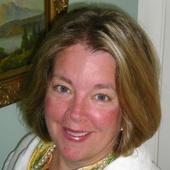Mortgage Fraud in Chicago
Reuters UK shows just how easy it is to steal over $300,000 from a bank in 2010.
The house on the 53rd block of South Wood Street in Chicago’s Back of the Yards doesn’t look like a $355,000 (227,200 pounds) home. There is no front door and most of the windows are boarded up.
Public records show it sold in foreclosure for $25,500 in January 2009, then resold for $355,000 in October. In between, a $110,000 mortgage was taken out on the home, supposedly for renovations. This June, the property went back into foreclosure.
To Emilio Carrasquillo, head of the local office of non-profit lender Neighborhood Housing Services of Chicago (NHS), the numbers don’t add up. He believes this is a case of mortgage fraud.
“There’s no way any property in this neighbourhood should sell for that kind of money,” said Carrasquillo, standing outside the house on Wood Street in this poor, predominantly black area of Chicago’s South Side. “Even if it was in great condition.”
Carrasquillo has identified a number of properties in Back of the Yards that sold for between $5,000 and $30,000 last year and then came back on the market for up to $385,000. He said property prices are being artificially inflated, allowing fraudsters to walk away with vast profits and making it harder for honest local people to buy a home.
Because these loans are all backed by Fannie, Freddie or the FHA, when the fraudsters walk away with the cash, it’s not the bank left holding the bag. It is the taxpayers who guaranteed the loan.
The neighbourhood has always been poor, but south of the old railway tracks at W 49th St, the housing crisis’ legacy of empty lots and boarded-up homes is evident on every block. There are few stores and services available — in four separate visits for this story, no police vehicles were sighted.
“This is what we refer to as a ‘resource desert,’” Carrasquillo said. “When no one pays attention to an area like this, it makes it easier to get away with fraud.”
Marni Scott, executive vice president for credit at Troy, Michigan-based lender Flagstar Bancorp, says there are virtually no untainted sales in the area. “There are no cases of Mr and Mr Jones selling to Mr and Mrs Smith.”
“We see cases of mortgage fraud around the country,” she added. “But there’s nothing out there that could match the mass-production, assembly-line fraud that’s going on here.”
In 2008 Flagstar instituted a rule whereby any loan applications here and in parts of Atlanta — another fraud hot spot — must be approved by Scott and the lender’s chief appraiser. In a Webex presentation, Scott rattles through a number of properties snapped up for pennies on the dollar in 2009 and then sold for around $360,000.
The property appraisal — compiled by an appraiser who Scott believes never visited the area — showed four nearby comparable properties of around the same age (100 plus years) sold recently for around $360,000. The trick to this kind of scheme is engineering the sale of the first few fraudulently overvalued properties to get “comps” — comparable values — to fool appraisers and underwriters alike.
“Miraculously, all of these properties were all within a very narrow price range,” Scott said with weary sarcasm. “This is a perfect appraisal for an underwriter. If you are an underwriter sitting in Kansas or California it all looks fairly straightforward so you can just hit the button and approve it.”
Using a $5 product called LoanIQ from U.S. title insurer First American Financial Corp called LoanIQ, Flagstar determined the application itself was fraudulent and there was a foreclosure rate in the area of nearly 60 percent. What is more, property prices here spiked 84 percent last year after 44 percent and 26 percent declines in 2008 and 2007.
“No neighbourhood should look like this,” said Scott, who declined the application.
Last April, however, another lender approved a loan application for $335,000 on the same property from the same people.
The FBI has 350 agents devoted to mortgage fraud fulltime out of 13,000 total agents. The FHA is also cracking down on mortgage lenders that do not enforce stricter lending standards.
FHA commissioner David Stevens was appointed in July 2009. Since then the FHA has shut down 1,100 lenders, after decades in which the government closed an average of 30 lenders annually. He says most lenders he deals with are of a “very high quality,” but that “there are still lenders that either don’t have controls in place or are proactively engaging in practices that pose a risk to the FHA.”
Stevens does not expect to shut down lenders at the same rate as the past year, but added “the number will be much higher than the historical average.”
CoreLogic’s Grace said most large lenders have the tools in place to combat mortgage fraud, but admitted he was concerned about some smaller lenders. “The next shakeout of weak lenders will take place over the next 12 to 24 months,” he said.
Flipping, flopping and booming mortgage fraud [U.K. Reuters, Nick Carey, Aug 17, 2010]

Comments(0)